General Questions
The most frequently asked questions regarding The KLF. This is where you should start reading about the work of Bill Drummond and Jimmy Cauty to explore the History of the JAMS.
Record Details
Differences between international releases. the recording of Chill Out and the other sound of Mu, covering the early Brilliant releases as well as the K Foundation and the One World Orchestra.
Bootlegs
Bootlegs of rare KLF releases have been released aplenty over the time. While some of them can be easily spotted, others are hard to distinguish from the original issues.
The White Room Original Motion Picture Soundtrack has never been officially released due to Bill and Jimmy cancelling it when Kylie Said To Jason failed to chart at higher places, so basically, every copy you will find of this is a bootleg. What follows is a list of the most notable versions you can find (depending on how lucky you are.)
1991 Cassette Bootleg
The earliest version known so far, released back in 1991 including a couple of bonus tracks including an 8-minute demo of 3 a.m. Eternal (Live At The S.S.L.).
1997 CD Release
In 1997, list members released a bootleg of the soundtrack that was apparently taken from a stolen mastertape.
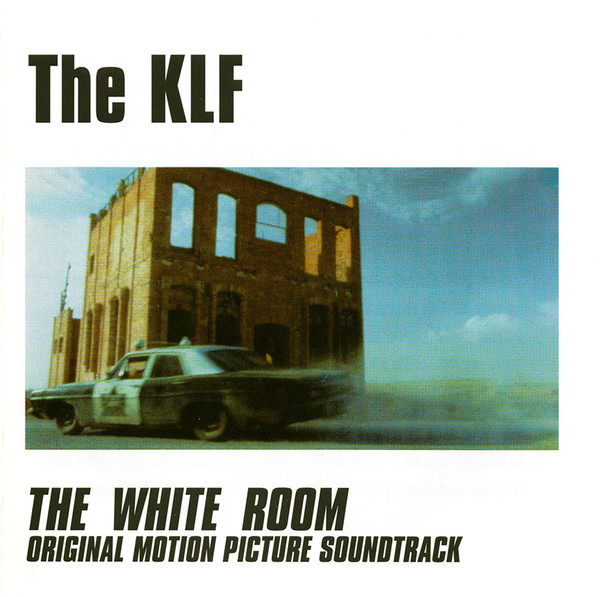
Along the original ten tracks of the OST, they also added some rarer KLF tracks and mixes, most notable the ‘monster attack mix’ of What Time Is Love?. While those bonus tracks were mastered from CD or vinyl which lead to a quite decent sound, the tracks taken from the mastertape sound quite muffled and got several stereo flaws in them. The sleeve features a quite interesting story about The White Room movie, though.
Re-recorded Release
Several years later, the owner of the original tape had it re-recorded in a professional studio, using the EQ settings from Kylie Said To Jason (the only track that had been released on CD). The sound quality of these is very good, especially if you were used to the 1997 bootleg’s sound.
This version was also temporarily hosted on the old KLF Online website around the time of release so you should have no problem finding a version of it online.
Arkive Volume 4
The White Room Soundtrack also got released as part of the Arkive series, including yet another set of bonus tracks.
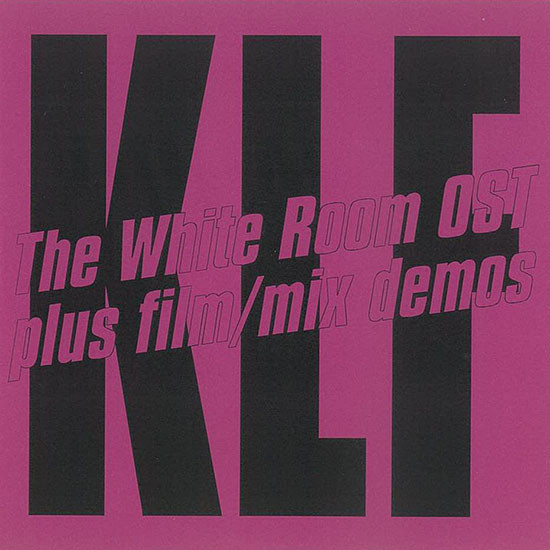
The exact release date is unknown.
2016 Cubefish LP
In 2016 a very limited run of the soundtrack got released on white vinyl in a limited run of 130 copies, being sourced from yet another DAT tape. The sleeve replicates those from the Pure Trance series in its layout but is plain white with glossy lettering. Once again sound quality is superior to that of previous bootlegs, making this the best sounding version to date.
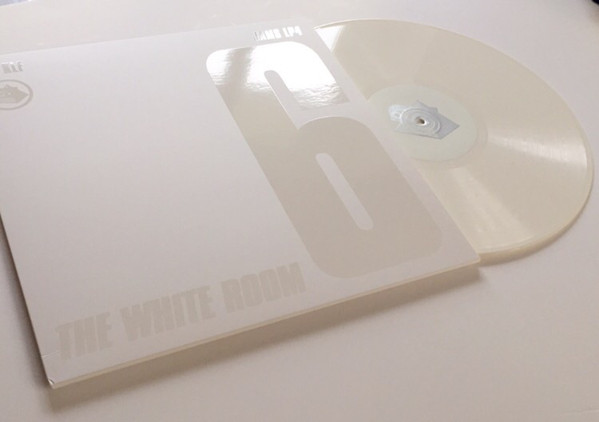
Another 60 copies were made available on CD, housed in a faux KLF Communications company cardboard sleeve which read 12CM instead of 12INCH.
What does […] sound like?
Some of the more rare and obscure tracks and projects can be hard to track down, so these should give you an idea of what to expect.
Other Creative Exploits
The never ending list of things, events and projects from, around, before and after The KLF – from the never finished White Room Motion Picture to the infamous burning of a million pounds on the Isle of Jura.
The White Room film a 50 minute ambient road movie with footage of Drummond and Cauty setting off from Trancentral on a quest to find the White Room, driving through London and Spain, to a soundtrack of pop-trance. It has been shown in public only once.
As mentioned before, the KLF received weird mail from Illuminatus! fans after calling themselves the Justified Ancients of Mu Mu. Much of the mail was from obvious cranks and crackpots, but then in mid 1988, they received a very weird letter: a legal contract. The contract was with an organisation or individual calling themselves “Eternity”. The wording of this contract was that of standard music business legal speak, but the terms discussed and the rights required and granted were of a far stranger kind. Whether The Contract was a very clever and intricate prank by a legal minded JAMS fan was of little concern to Drummond and Cauty. For them it was as good a marker as anything as to what direction their free style career should take next.
Their solicitor (David Franks, played by himself in the film) advised that they should not put their names to legally binding agreements without first understanding all of the implications of doing so. He advised them not to sign the Contract. The KLF of course ignored him and signed the contract.
In the first term of The Contract they, Drummond and Cauty, were required to make an artistic representation of themselves on a journey to a place called THE WHITE ROOM. The medium they chose to make this representation was up to them. Where or what THE WHITE ROOM was, was never clearly defined. Interpretation was left to their own creativity. The remuneration they are to receive on completion of this work of art was supposed to be access to THE “real” WHITE ROOM. Your guess is as good as anybody’s.
Initially Drummond and Cauty planned to stage a art exhibition where the journey and arrival at THE WHITE ROOM would be represented on canvas and exhibited; but driving down the Marylebone Road on a wet September afternoon in 1988 in their infamous U.S. Cop car, Cauty suggested, instead of doing the art exhibition they should make a film. The making of a “Road Movie” had always figured in their vague plans for the future. With money coming in from all over the place for their Timelords record maybe now was the time. Or at least they thought so.
They contacted their friend and associate, the film director, Bill Butt and made plans. Six weeks later they were filming in the Sierra Nevada region of Spain, with a top class international crew (who had just finished working on an Indiana Jones film). But things started to go wrong immediately. The weather, guaranteed to be blue skies of epic proportions until well after Christmas, was low and drizzly. Some business deals crashed, losing the money that was earmarked to complete the film. When they viewed all of the uncut rushes that had been shot, they knew that they had just thrown away the best part of £250,000: most of the footage was out-of-focus, or badly filmed. Of course if you talk to anybody who tries to make a film they will tell you of the catalogue of disasters that came between them and their reported triumphant premier. Drummond and Cauty had no experience of this. They just felt that the Gods were against them and got seriously depressed. They had meetings with their accountants to assess what the damage would be if they were to cut their losses and pull out then. Bill Butt persuaded them to see it through.
By February 1989 when they had enough funds together for them to shoot the interior scenes and the London location shots, David Franks had become steadily more intrigued by all the implications of the various clauses of The Contract. Although The Contract was between The JAMS and Eternity, Eternity gave no address, Eternity left no room for negotiation. [Note in ‘Justified and Ancient’: “At 3am Eternity rang, said she knew What Time Is Love?”]. David Franks believed he had found a get out clause. Something that Drummond and Cauty would later call the LIBERATION LOOPHOLE. It was decided by Bill Butt and the other two that the signing of the contract and Franks’ discovery of the LIBERATION LOOPHOLE should be dramatically reconstructed, filmed and respectively used at the beginning and the end of the film.
The rest of the film was then shot, Drummond and Cauty recorded the soundtrack. Bill Butt and editor Rob Wright edited the film. It was only 52 minutes’ long but it was BIG SCREEN and looked good. They planned either a proper cinema release or a club tour, with the KLF playing the soundtrack live for the second half of 1989. The White Room soundtrack LP was to be preceded by the release of Kylie Said To Jason, the video for which included scenes from the film. Additionally many of the scenes were included in a short promo for the film, with a soundtrack of Madrugana Eterna, which was shown on TV. Drummond and Cauty are shown leaving Trancentral, and driving through London, then driving through mainly desert country. Some memorable scenes include the JAMs-mobile covered in white dustwash, with the windscreen wipers clearing a space, Drummond combing his hair before sauntering down the road as if he was a traffic cop, and the dead eagle scene: Drummond had come across a beautiful but decomposing eagle at the side of the road, which nobody else would go near, as it stank. Drummond insisted on being filmed with it as he strode down a one track rail line, the significance of this at the time could not be argued. Finally the wheels of the JAMs-mobile stop in a snow drift, and the KLF climb upwards through the snow towards a huge radar dish, wherein they find the White Room.
Kylie Said To Jason was planned to be a big pop hit to promote the LP. It wasn’t. The release of the LP was pulled. The What Time Is Love Story LP became JAMS LP 4 instead. A video for the pure trance What Time Is Love? is sometimes shown on MTV. It consists of unedited footage from Sierra Nevada. Two shots of sheep in a field bookended a 3 minute shot of the JAMs-mobile gradually driving a couple of miles towards the camera across a barren plain. It’s extremely tedious, and getting MTV to show this can be viewed as a prank, despite the fact they often do! A slightly different version is also available on a compilation tape of Indie promos, but it is VERY rare.
A combination of worries about the dramatic qualities of the film, and lack of commercial success caused huge doubts in Drummond and Cauty’s minds. However the rapidly emerging rave and club success of their pure trance songs took their minds off the doubts. They played their premier live performance at the London Club HEAVEN on Monday the 31st of July. Later that evening they met a young down and out, claiming to be called Mickey McElwee. For the price of a meal he told them the most shit scary story the both of them had ever heard. Later they related the story to Bill Butt. It was agreed that it could make the basis of a plot for the film.
As far as we know the finished film should contain both an Inner and Outer film. The Inner film is the original one shot in late 1988 and early 1989. The Outer film contains the dramatically reconstructed events that according to Mickey McElwee, took place, unbeknown to Drummond and Cauty while The Inner film was being shot. There will also be, what we will call, a Third Strand which will consist of scenes plotting the tensions and predicaments that Drummond, Cauty and Butt experienced while attempting to make The Inner film. All three plots will intertwine with each other telling the one simple story. The story of Men out of their Depth. In The Inner film Drummond and Cauty play their alter egos KINGBOY D and ROCKMAN ROCK. In the outer film they play themselves. Bill Butt reckoned it would cost a further $1,000,000 to finish the film. They showed the Inner film to German investors and some sheep in Munich, (its one and only showing!), to try and persuade them to finance the film’s completion. It appears they never raised the cash as the script was too weird. But when their pop career took off and they did make some money, it seems as though they dropped their plans to finish the film altogether.
A complete script is currently available on the website of Pirate Cinema Berlin (who screened the Inner movie in 2005), containing the Outer, Inner and Third strands, as well as sets/locations/stage directions and lots of other really interesting info, though it’s up to the reader to decide whether this is the real deal. When once asked about said script Bill Drummond denied its authenticity, but it’s unclear whether this was a genuine remark or just Bill not wanting to talk about something he had left behind himself.
An advert appeared in the NME in 1994, claiming to be copies of the whole film, but investigation has revealed this only to be the inner film. Thus several bootlegged copies and a DVD of the inner film are around, and available from generous list members. The quality of all known copies is pretty good, considering they’re 4th or 5th generation. Sound and visuals are quite clear and noise and interference don’t detract from the film’s content too much. There is no dialogue in this Inner Film, only the music. It is possible to hear much of the original White Room soundtrack, for example the original “Build a Fire” and “Go to Sleep”. It is not known what happened to the original film.
Merchandise
From T-Shirts to Books, from Promo Videos to home-made DVDs – there have been many non-CD releases and collectibles during all those years. Read more about them and find out wether they are still available.
Miscellaneous
Questions that didn’t fit into any other category so we had to create one for them.

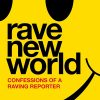
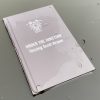
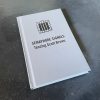
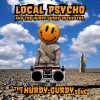
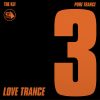
Recent Comments